
ICAS Bulletin (online ISSN 2836-3418, print ISSN 2836-340X) is published every other week throughout the year at 1919 M St NW, Suite 310, Washington, DC 20036.
The online version of ICAS Bulletin can be found at chinaus-icas.org/bulletins/.
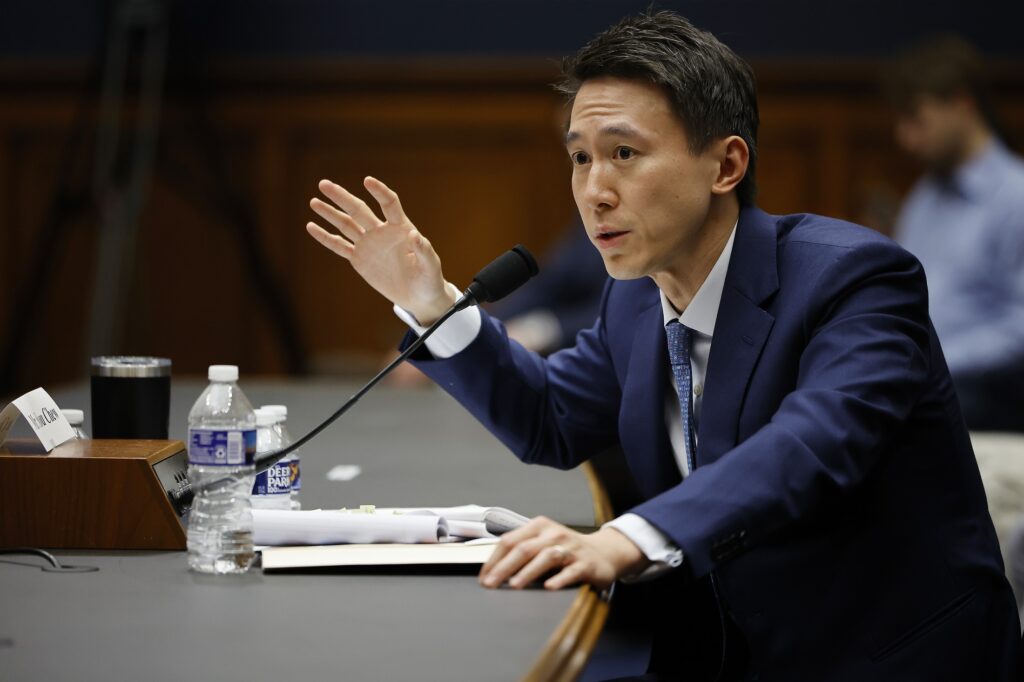
– Following a five-hour hearing between the U.S. House Committee on Energy and Commerce and TikTok CEO Shou Zi Chew, after the CEO faced continuous accusations and answered questions about TikTok’s firewall and data protection policies, China’s Foreign Ministry released a statement clarifying that China does not ask any company for access to foreign data.
– Popular social media app company TikTok is facing continual calls from the U.S. Congress about a possible ban of the app over national security concerns.
– The Biden Administration announced new tight restrictions on access to CHIPS Act semiconductor funds, barring Chinese firms from winning federal grants.
– Chinese app Pinduoduo has been banned from the Google Play store, as recently found versions of the app contained malware, raising suspicions on Chinese-developed e-commerce apps.
– Groups of Silicon Valley technology firm executives are looking to cooperate on moving away from Chinese technology firms, especially TikTok.
– TikTok and Oracle utilized lobbying and light protest techniques to showcase domestic support for the app, in-light of the Congressional hearings.
– The Chinese Foreign Ministry Spokesperson Wang Wenbin told reporters that the U.S. should, “stop spreading disinformation about data security” and provide a fair and open economy for TikTok and other companies.
– Researchers with Google found that Chinese state-sponsored hackers are able to evade common security techniques to burrow into government and private networks to spy, and have been able to for years.
– After weeks of clashes, the Biden administration warned TikTok that the app will either need to sell to a U.S. based company, or face a ban from the U.S. market.
Associated News References:
“China Hits Back on TikTok, Says It Doesn’t Ask Companies for Foreign Data,” The Wall Street Journal, March 24 [Paywall]
“TikTok faces uncertain future after 5-hour congressional thrashing,” The Washington Post, March 23 [Paywall]
“Key takeaways: TikTok CEO Shou Zi Chew testifies to US Congress,” Al Jazeera, March 23
“Biden Stunts Growth in China for Chipmakers Getting US Funds, ” Bloomberg, March 21 [Paywall]
“Google Halts Download of Chinese App Pinduoduo Over Security Concerns,” The Wall Street Journal, March 21 [Paywall]
“Silicon Valley and Capitol Hill Build an Anti-China Alliance,” The Wall Street Journal, March 17 [Paywall]
“TikTok Ramps Up Lobbying in Washington to Try to Avoid U.S. Ban,” The Wall Street Journal, March 16 [Paywall]
“China says US suppressing TikTok after Biden administration calls for sale,” AP News, March 16
“Wave of Stealthy China Cyberattacks Hits U.S., Private Networks, Google Says,” The Wall Street Journal, March 16 [Paywall]
“U.S. tells TikTok owners to sell app or face a ban,” Axios, March 15
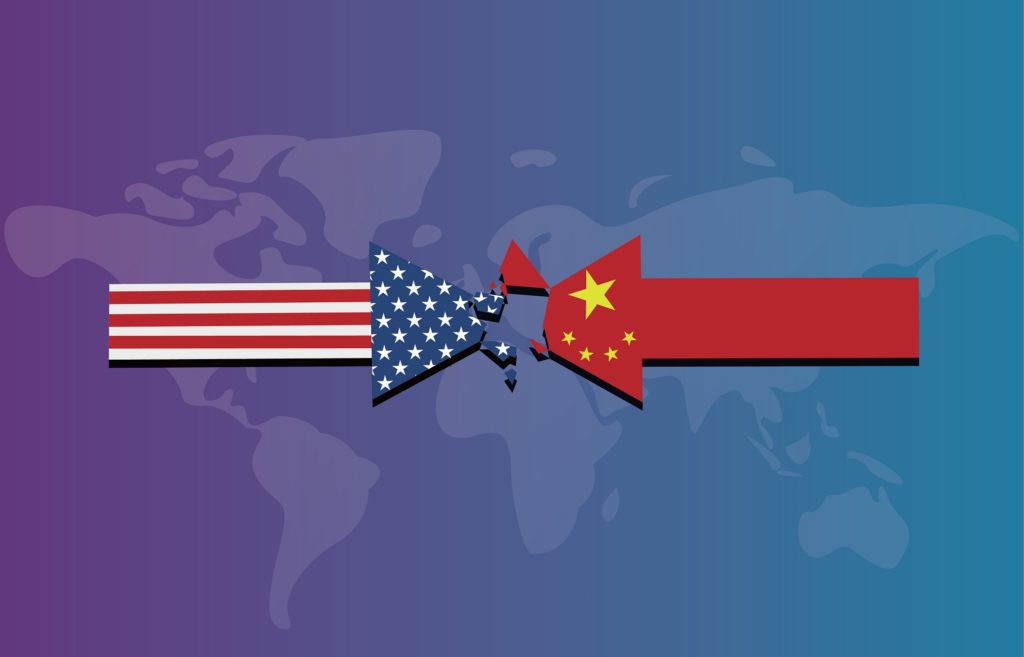
– The U.S. Commodity Futures Trading Commission (CFTC) sued Binance and its CEO Changpeng Zhao for “willful evasion” of U.S. law, alleging that the world’s biggest crypto exchange operated an “illegal” exchange and a “sham” compliance program.
– China’s commerce minister, Wang Wentao saw Apple CEO Tim Cook to discuss China’s reopening and supply chain issues while attending the China Development Forum. Meanwhile, Apple has been encouraging suppliers to diversify their production away from China.
– Starting April 1, foreign parties will indefinitely lose access to four databases in the China National Knowledge Infrastructure, China’s top portal for academic papers.
– Chinese authorities detained five local staff members and raided the Beijing office of U.S. due diligence firm Mintz Group, alerting foreign companies in China amid an international economic forum.
– The U.S. House Select Committee on the Chinese Communist Party is looking to investigate possible human rights violations from China to the Uyghur population.
– Apple CEO Tim Cook and Pfizer CEO Albert Bourla are among the few U.S. business leaders physically attending the China Development Forum, which opened March 26.
– A Former U.S. Marine Corps pilot has been arrested in Australia on charges of breaking U.S. laws by training Chinese fighter pilots to land on aircraft carriers.
– U.S. President Biden signed a bill to declassify significant amounts of COVID-origination documents and turn “potential links” into the hands of the public.
– The U.S. plans to resume domestic visa renewals for certain categories, including H-1B for high-skilled IT workers from India and China. A pilot program will begin this year before potentially scaling up.
– Rounds of Chinese ammunition have been used in Ukrainian battlefields by Russian soldiers, according to U.S. government sources.
– The Chinese Foreign Ministry warned that AUKUS has gone down a “wrong and dangerous road” in agreeing to acquire nuclear submarines which it argues “completely ignored the concerns of the international community.”
Associated News References:
“US regulator sues top crypto exchange Binance, CEO for ‘willful evasion,’” Reuters, March 28 [Paywall]
“Apple CEO Tim Cook meets with China’s commerce minister on supply chain,” CNBC, March 27
“A portal to China is closing, at least temporarily, and researchers are nervous,” South China Morning Post, March 25 [Paywall]
“China detains staff, raids office of US due diligence firm Mintz Group,” Reuters, March 24 [Paywall]
“House China panel turns focus to plight of Uyghurs,” AP News, March 24
“Tim Cook and Ray Dalio Among Few US Chiefs Attending China Business Summit,” Bloomberg, March 23 [Paywall]
“Former US Marine may have been ‘lured’ from China before arrest, lawyer says,” Reuters, March 20 [Paywall]
“Biden signs bill on COVID origins declassification,” AP News, March 20
“U.S. plans to resume domestic visa renewals for IT workers,” Nikkei Asia, March 20
“Chinese ammunition used in Ukraine battlefields: US government sources,” The Straits Times, March 18
“China warns AUKUS: You’ve gone down a ‘dangerous road’ with nuclear subs deal,” Politico, March 14, 2023

– The U.S.’s presence in Taiwan cautioned that China frequently fails to keep its promises in exchange for recognition, as Honduras officially severed its longstanding relations with Taiwan in favor of China.
– On March 23, the U.S. denied Beijing’s accusation that the USS Milius, a guided missile destroyer, had ever “illegally intruded into China’s Xisha territorial waters without the approval of the Chinese government.”
– U.S. Secretary of State Antony Blinken emphasized the importance of U.S. arms sales and supplemental military funding to Taiwan to run against China’s growing capability of invasion by 2027.
– Pacific Air Forces Commander General Kenneth Wilsbach stressed the need for both better weapons to sink Chinese warships with surface-to-air missiles and location radars in east Taiwan to protect the island.
– The Biden administration urges China to avoid raising tensions during Taiwan President Tsai Ing-wen’s U.S. visit in the coming week while adhering to the U.S. commitment to maintain unofficial relations with Taiwan.
– The U.S. and Taiwan have announced new meetings to work towards a bilateral trade agreement, which include five topics that both countries believe to be beneficial in the promotion of free trade.
Associated News References:
“U.S. warns China’s promises often empty as Honduras wavers on Taiwan,” Reuters, March 25 [Paywall]
“U.S. rejects China claim that warship illegally entered South China Sea waters,” NBC News, March 24
“Blinken says China will be capable of invading Taiwan by 2027,” South China Morning Post, March 22 [Paywall]
“U.S. Needs Air Superiority, Ship-Killing Weapons to Defend Taiwan, Pacific Air Forces Commander Says,” USNI News, March 21
“U.S. Warns China Not to Use Taiwan President’s U.S. Stop to Raise Tensions,” The Wall Street Journal, March 21 [Paywall]
“U.S., Taiwan Move Closer to Trade, Investment Agreement,” The Wall Street Journal, March 16 [Paywall]
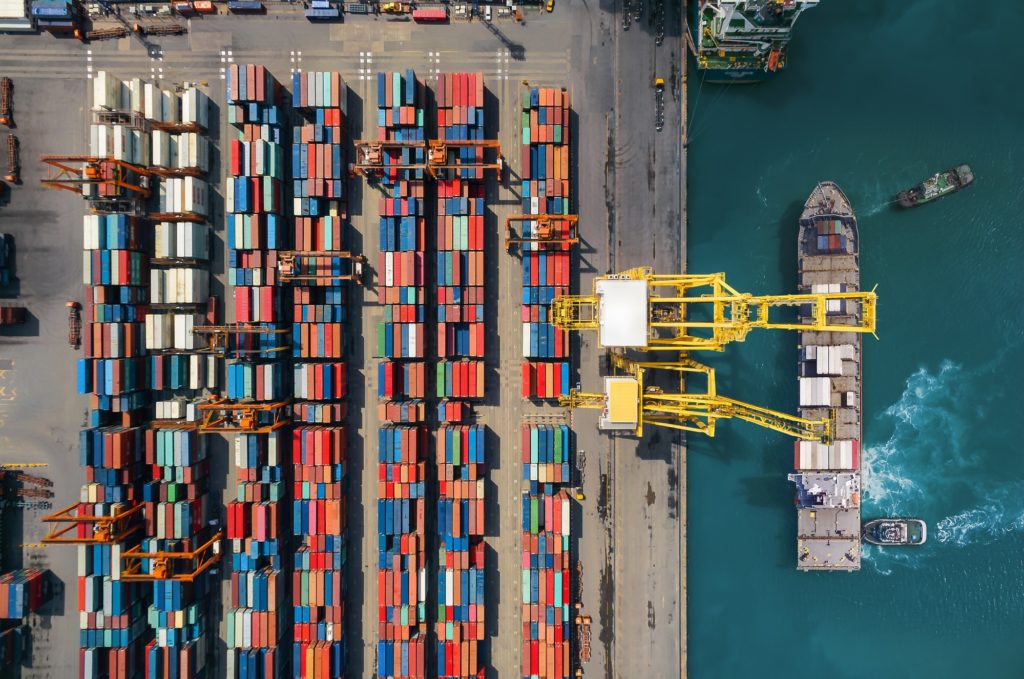
– An executive order on outbound investment screening may be issued within weeks or months, which would require companies to inform Washington in advance of potentially problematic investments in a narrow range of sensitive industries, marking a further step in the decoupling of the U.S. and Chinese economies.
– A Chinese commerce ministry spokesperson stated that China has never aimed to achieve a trade surplus with the U.S., despite reducing reliance on American exports. A U.S. think tank subsequently suggested inflation as the main contributor.
– Apple is pushing for changes to India’s labor laws to diversify production beyond top supplier Foxconn in China, with Indian local governments willing to consider flexible rules.
– Manufacturers are moving production back to China as tariffs impact their profit margins, after shifting to Southeast Asia due to previous U.S.-China trade tensions.
– The Taiwan Semiconductor Manufacturing Company (TMSC) founder Morris Chang stated that free trade globalization for the chips sector is dead, following increased bilateral embargo lists from the U.S. and China.
– The People’s Bank of China stated its intention to “appropriately respond” to U.S. containment and suppression, echoing President Xi Jinping’s criticism of the U.S.’s attempts to suppress the country’s economy.
Associated News References:
“U.S. readies targeted screening for investment in Chinese tech,” Nikkei Asia, March 23 [Paywall]
“China says it has never deliberately pursued trade surplus with U.S.,” Reuters, March 23 [Paywall]
“Apple Seeks India Labor Reform to Diversify Beyond China,” Bloomberg, March 21 [Paywall]
“Manufacturers Move Back to China as Renewal of U.S. Trade Deal Is Delayed,” The Wall Street Journal, March 17 [Paywall]
“Chip Globalization Is Over and Sanctions Work, Says TSMC Founder,” Bloomberg, March 16 [Paywall]
“China Central Bank Heeds Xi Call to Fight US ‘Containment’,” Bloomberg, March 15 [Paywall]
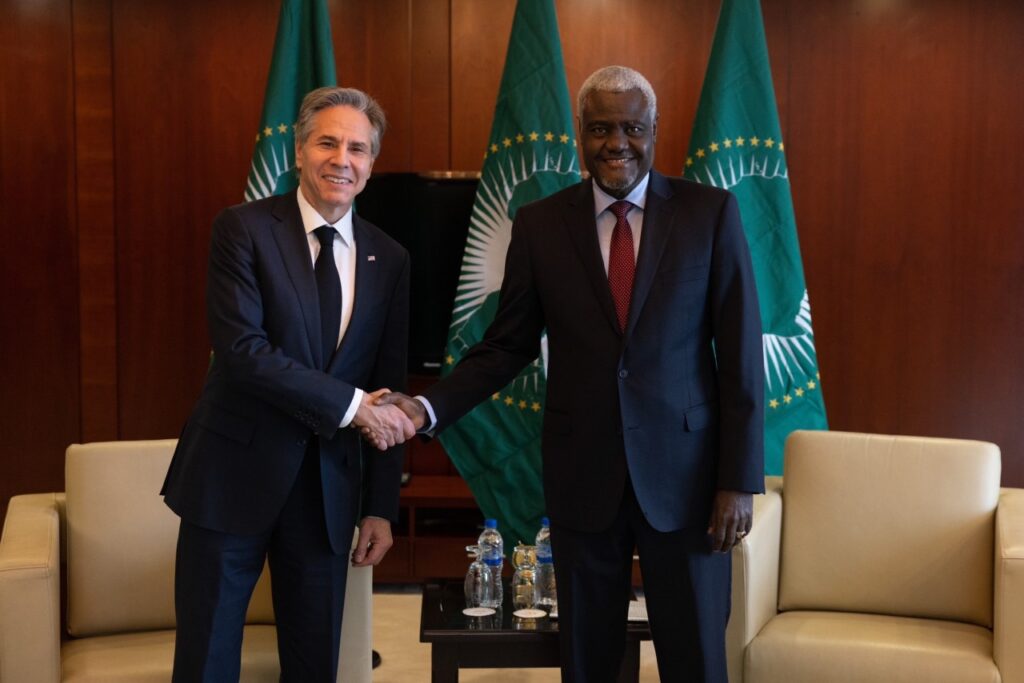
– Several high-ranking Chinese diplomats stated that China strongly opposes any new U.S. military presence within the Philippines.
– 40 U.S. senators have joined a bipartisan initiative to stand behind Hong Kong, and possibly utilize sanctions against China.
– Beijing defense scientists simulated North Korea launching an intercontinental ballistic missile attack against the U.S. mainland, which projected the possibility of such a missile hitting the central U.S. about 33 minutes after launch if the U.S. missile defense network fails to intercept it.
– U.S. Vice President Kamala Harris and Secretary of State Antony Blinken traveled to more than five countries collectively in Africa in a bid to counter the growing Chinese influence on the continent.
– During her visit to Zambia and Ghana, Vice President Harris planned to discuss the growing Chinese presence in Africa, and reaffirm bilateral partnerships.
– Chinese Premier Li Qiang voiced his desire for the U.S. and China to cooperate and work together to reduce bilateral tensions, including resuming important high-level talks.
– Chinese analysts have suggested a mitigation technique for a possible U.S. Speaker of the House visit to Taiwan—jointly sending the Vice President to Beijing—that was last used in 1997.
Associated News References:
“US Vice President Harris to address China’s influence and debt distress in Africa visit,” Reuters, March 24 [Paywall]
“Chinese diplomats oppose US military presence in Philippines,” AP News, March 23
“Forty US senators join push for tougher stance over China’s treatment of Hong Kong,” Reuters, March 15 [Paywall]
“North Korean missiles could hit central US in 33 minutes, Chinese simulation finds,” South China Morning Post, March 15 [Paywall]
“Kamala Harris, Antony Blinken Head to Africa in a Bid to Counter China,” The Wall Street Journal, March 14 [Paywall]
“Premier Li Urges US-China Cooperation, Seeks ‘Concrete Actions’,” Bloomberg, March 13 [Paywall]
“China unofficially suggests way to mitigate Taiwan trip by House speaker: US sources,” South China Morning Post, March 10 [Paywall]
“Sam Bankman-Fried Is Charged With Foreign Bribery,” The New York Times, March 28 [Paywall]
“Pentagon Prepares for Space Warfare as Potential Threats From China, Russia Grow,” The Wall Street Journal, March 28 [Paywall]
“Request for Proposals on China’s Censorship Practices,” U.S.-China Economic and Security Review Commission, March 28 – April 25, 2023
“Amid strained US ties, China finds unlikely friend in Utah,” AP News, March 27
“Huawei reportedly says it has developed domestic chip design tools despite U.S. sanctions,” CNBC, March 27
“China’s Economic Coercion Needs Congressional Response, Ambassador Says,” The Wall Street Journal, March 27
“Scientist exiled from US brain research finds well-funded lab in China,” South China Morning Post, March 23 [Paywall]
“US semiconductor firm Marvell lays off entire China research and development team in latest round of job cuts amid industry slowdown,” South China Morning Post, March 22 [Paywall]
“U.S. charges exiled Chinese businessman Guo Wengui with $1 bln fraud,” Reuters, March 16 [Paywall]
“Experts call on Israel to adopt ‘more proactive role’ in US-China conflict,” Jewish News Syndicate, March 15
“US sanctions boost China’s R&D investment and output in some hi-tech fields: Chinese study,” South China Morning Post, March 14 [Paywall]
“Chinese Rocket that Delivered Military Spy Satellites Breaks Up Over Texas,” USNI News, March 9
March 28 hosted by Foreign Policy
March 23 hosted by House Select Committee on the Strategic Competition Between the United States and the Chinese Communist Party
March 23 hosted by U.S.-China Economic and Security Review Commission
March 21 hosted by Center for Strategic and International Studies
March 17 hosted by Wilson Center
March 29 hosted by Center for Strategic and International Studies
April 4 hosted by United States Heartland China Association
April 11 hosted by Wilson Center
April 20 hosted by The China Project
Roles of Asian Observers in Arctic Governance: Adapting to a Changing Arctic Council
Thursday, April 13, 2023
9:30 AM – 11:00 AM EST
Climate change has increased accessibility to potential Arctic resources, changing the geopolitical landscape and broadening the international focus on the Arctic to include more geographically distant countries such as China, Japan, South Korea, India, and Singapore. Seeking observer status in the Arctic Council is regarded by these Asian countries to be an important step towards ensuring that they are involved in determining the future of the Arctic; a region which they believe will influence their economic interests and global environmental concerns.
Triggered by the Ukraine conflict, the March 2022 joint statement by the Arctic Council states to pause participation in all meetings of the Arctic Council indicates grave impediments to international cooperation in the Arctic. So long as this statement is in play, the premier forum for Arctic governance, which tended to be immune from geopolitical tensions, can no longer function in its consensus-based format. This subsequently opened up an ongoing debate on the future of the Arctic Council.
What does the suspension of the Arctic Council meetings mean for Arctic Council observers? Will Norway, who will take over the chairmanship in May 2023, make any progress to break through the current ties? Will the debate on the concept of an “Arctic Council 2.0” gain support among non-Arctic states who have a deep interest in Arctic governance? Will non-Arctic countries such as China, Japan, South Korea, India, and Singapore — which have growing Arctic interests and have contributed much to Arctic research —welcome the opportunity for them to establish a more solid role in this region’s affairs? How will the observers adapt to a changing Arctic Council?
This event, co-organized by the China Institute of the University of Alberta, will bring together scholars from the five Asian observers of the Arctic Council, China, Japan, South Korea, India, and Singapore to exchange their views on this critical issue.
By Nong Hong
March 17, 2023
March 4th marks a historic achievement of the law of the sea community with a legally binding agreement reached by the Intergovernmental Conference on Marine Biodiversity of Areas Beyond National Jurisdiction (BBNJ) after almost 20 years’ negotiation. The BBNJ Agreement, now also called High Seas Treaty, is the culmination of discussions that began in 2004 under the United Nations Convention on the Law of the Sea (UNCLOS) to enhance the conservation and sustainable use of biological diversity in the oceans beyond the exclusive economic zones (EEZ) and continental shelves of states. The new instrument will offer protection to the nearly two-thirds of the ocean that is beyond national jurisdiction and address existing inequalities in sharing the benefits accrued from the organisms of these areas…
By Zhangchen Wang
March 27, 2023
The renewable energy industry is now entering a stage of high-speed growth as countries pay more attention to reducing carbon emissions. Considering the enormous additions of the fossil fuel industry to the global CO2 emissions output, a transition from fossil fuels to renewable energy to generate electricity will be the only path to curb climate change. In fact, this transition has already begun. Currently, more than a fourth of global electricity production capacity comes from renewable energy, leading the proportion of fossil fuels-generated power to decrease in recent years. Many energy consumers, including both individual households and major corporations, are also trying to increase their share of renewable electricity to fulfill sustainable development goals and enhance the brand image. Unfortunately, despite the encouraging trends, the huge demand for renewable electricity clearly exceeds its actual productivity. As a result, some cases of misinformation and practices in disinformation related to climate productivity—commonly coming to be known as “greenwashing”—began to emerge in the renewable energy industry. Although the emergence of such “greenwashing” activities further prove the preference of the public and general market toward renewable energy and its unprecedented potential, it is still necessary to prevent this misleading information from both causing unfair competition and consequently damaging the environment…
On Tuesday, March 21, 2023, Senior Fellow Sourabh Gupta discussed Xi Jinping’s visit to Moscow and China’s Ukraine peace proposal on CBS News.
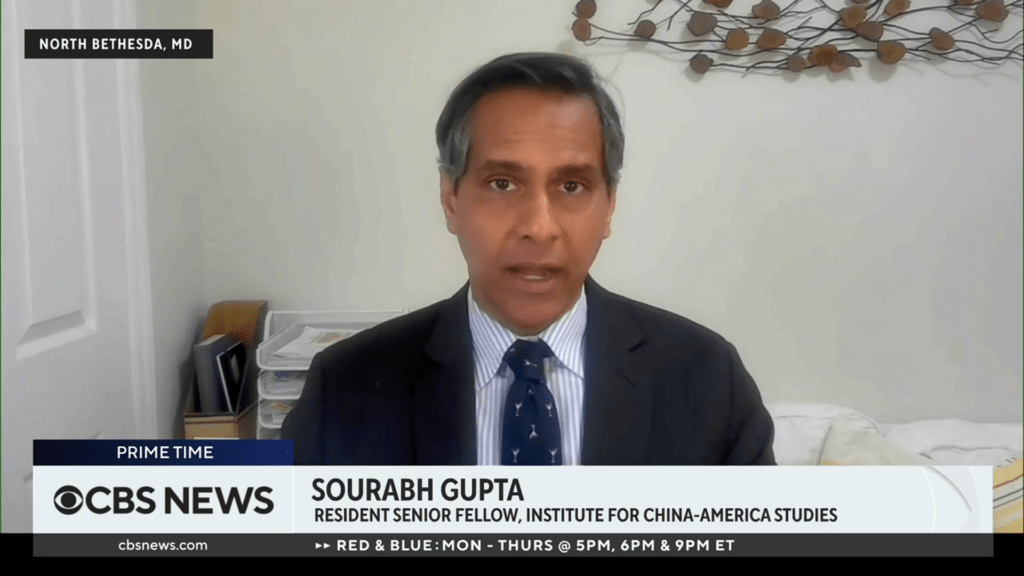

The Institute for China-America Studies is an independent nonprofit, nonpartisan research organization dedicated to strengthening the understanding of U.S.-China relations through expert analysis and practical policy solutions.
1919 M St. NW Suite 310,
Washington, DC 20036
icas@chinaus-icas.org
(202) 968-0595
© 2025 INSTITUTE FOR CHINA-AMERICA STUDIES. ALL RIGHTS RESERVED.